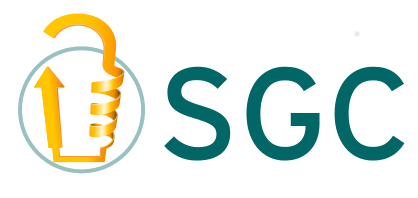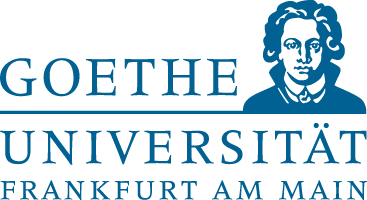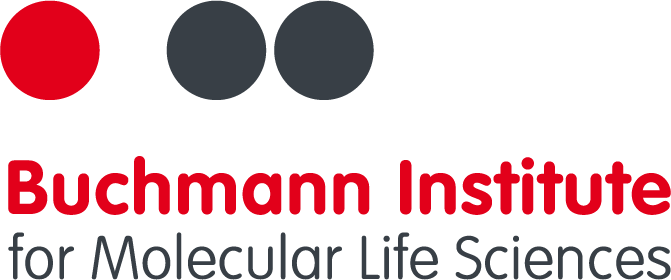About SGC Frankfurt
- Institute
- Compound Management Platform
- Open Science
- Advisors
The Structural Genomics Consortium at the Goethe University Frankfurt (SGC Frankfurt) is focused on the development and rational design of selective inhibitors (chemical probes) targeting key signaling molecules and their use for the validation of new targets. The research team focusses on the following key areas:
- Kinases: Strategies for the development of highly specific inhibitors will be focused on a) allosteric inhibitors and inhibitors targeting unique active site pockets. This approach allows us to interrogate catalytic as well as scaffolding functions of kinases exploring also catalytically inactive or weakly active pseudokinases as drug targets; b) We are also developing covalent kinase inhibitors by targeting cysteines in the proximity of the ATP binding pocket using electrophilic groups and c) we are exploring improved shape compatibility using macrocycles to generate novel and more specific kinase inhibitors targeting the active (type I) and inactive states (type II).
- Inhibitors that target key enzymes and protein-protein interactions such as bromodomains modulating chromatin and epigenetic mechanisms.
- Development and characterization of chemical probes targeting the ubiquitin system.
- Development and characterization of chemical probes modulating autophagy including key enzymes as well as protein interactions such as conjugating enzyme as well as binding partners of autophagy modifiers (LC3/GABARAP)
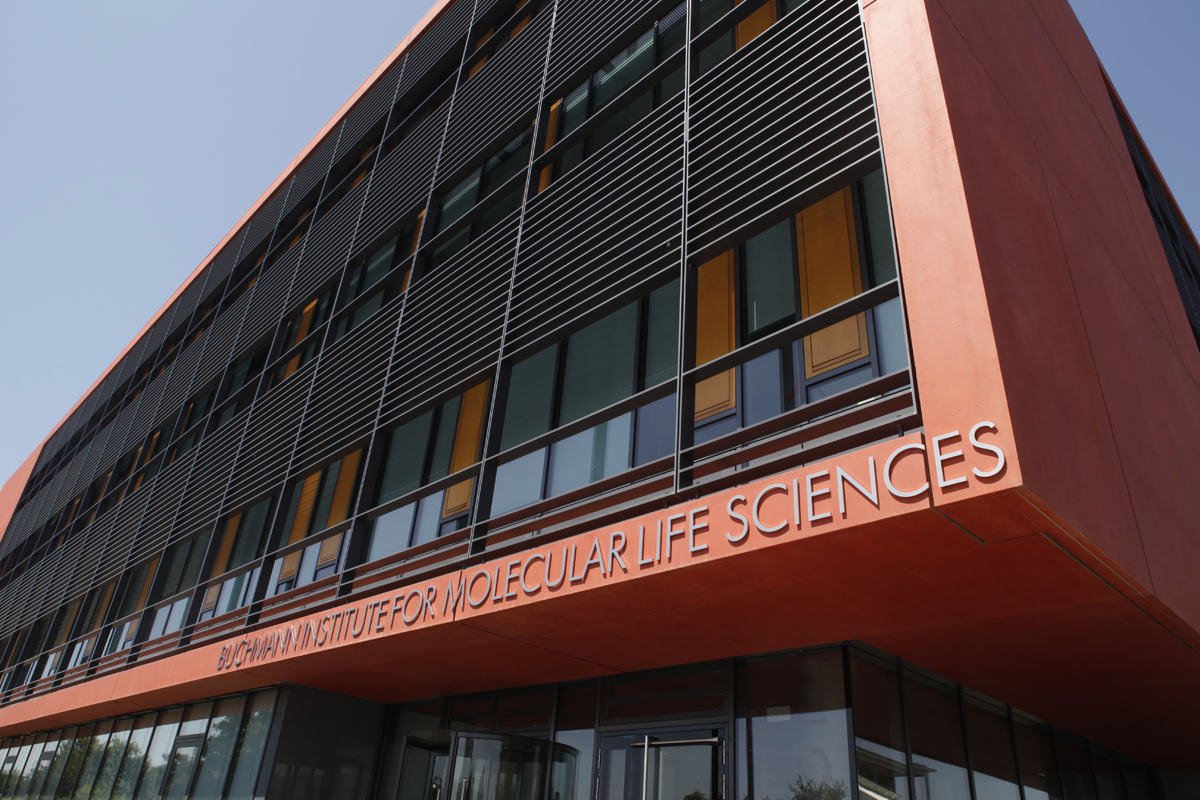
The SGC Frankfurt is also coordinating the open science probe project, a large scale initiative that makes high quality chemical probes available. These highly specific inhibitors have been developed by industry for diverse therapeutic areas but are no longer pursued as drug candidates. They offer therefore a valuable resource for basic research, target validation as well as translational studies including repurposing in other therapeutic areas
The team has capacities for protein production, in vitro screening (biochemical and biophysical methods as well as cell-based assays) as well as high resolution structural studies including NMR and X-ray crystallography and electron microscopy.
Our Compound Management Platform is dedicated to supporting inhibitor development and high-throughput screening efforts in academic drug discovery. Equipped with the cutting-edge ECHO 650 acoustic liquid handling system, the platform enables ultra-precise, non-contact transfer of nanoliter volumes (2–10 nL), allowing for efficient assay miniaturization, reagent conservation, and minimal waste.
This advanced technology increases screening throughput and data accuracy compared to traditional pipetting methods, making it ideal for handling sensitive compounds in complex, high-density assay formats. By facilitating reliable and scalable compound dispensing, our platform accelerates the discovery of novel inhibitors and chemical probes. Integrated within Goethe University Frankfurt and the RMU research network, the platform actively supports translational research initiatives and global collaborations, providing high-quality compound management that drives innovative drug discovery projects worldwide.


Open Science
The SGC is engaged in pre-competitive research to facilitate the discovery of new medicines. As part of its mission the SGC is generating reagents and knowledge related to human proteins and proteins from human parasites. The SGC believes that its output will have maximal benefit if released into the public domain without restriction on use, and thus has adopted the following Open Access policy.
The SGC and its scientists are committed to making their research outputs (materials and knowledge) available without restriction on use. This means that the SGC will promptly place its results in the public domain and will not agree to file for patent protection on any of its research outputs. It will seek the same commitment from any research collaborator.
Advisors
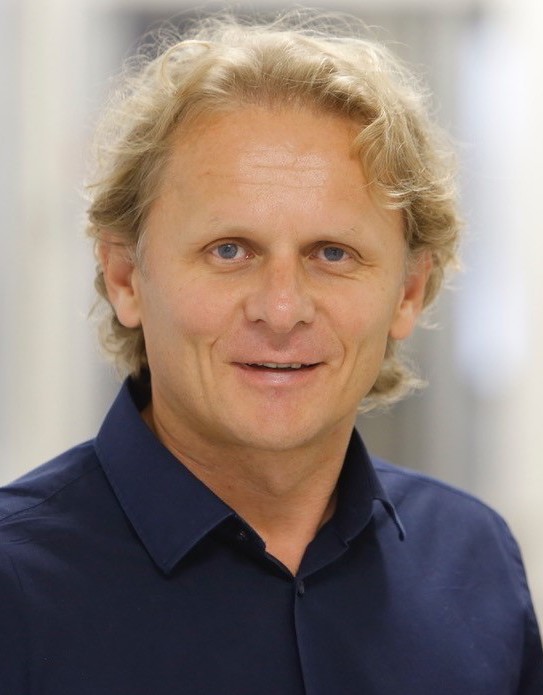 Ivan Dikic, Prof MD PhD
Ivan Dikic, Prof MD PhD
Email: dikic (at) biochem2.de
Tel: +49 (0)69 6301-5652
Ivan was trained as a medical doctor in his hometown Zagreb (Croatia), before joining the lab of Joseph Schlessinger in New York in 1992 to pursue a PhD thesis in molecular biology. He moved back to Europe in 1997 to start his own group at the Ludwig Institute for Cancer Research in Uppsala (Sweden). In 2002, Ivan accepted a professorship at Goethe University and was appointed as director of the Institute of Biochemistry II in 2009. In parallel, he was the founding director of the Buchmann Institute for Molecular Life Sciences (BMLS), where he still sustains an outstation lab. His research is dedicated to deciphering the molecular mechanisms of cellular signaling pathways, which have a high relevance to human diseases such as cancer, neurodegenerative disorders and inflammation. Ivan is the speaker of Germany's first collaborative research network on autophagy (SFB 1177, www.sfb1177.de) and part of the local steering boards for the German Cancer Consortium (DKTK) and the SGC. Ivan was awarded with numerous recognitions, amongst them the Gottfried Wilhelm Leibniz Prize 2013 and election to the German National Academy of Sciences Leopoldina.
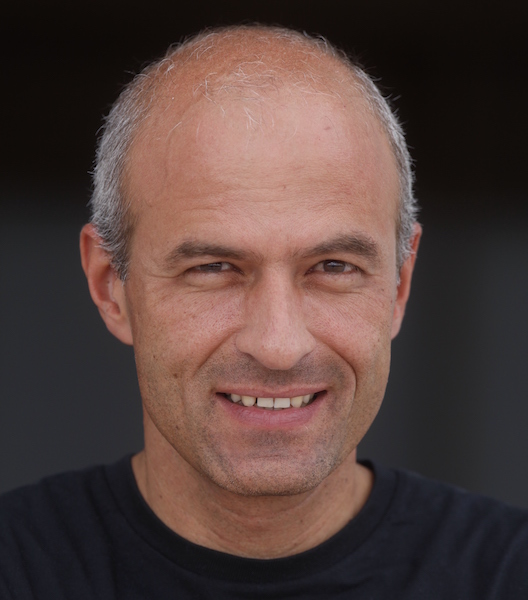
Email: vdoetsch (at) em.uni-frankfurt.de
Tel: +49 (0)69 798-29631

